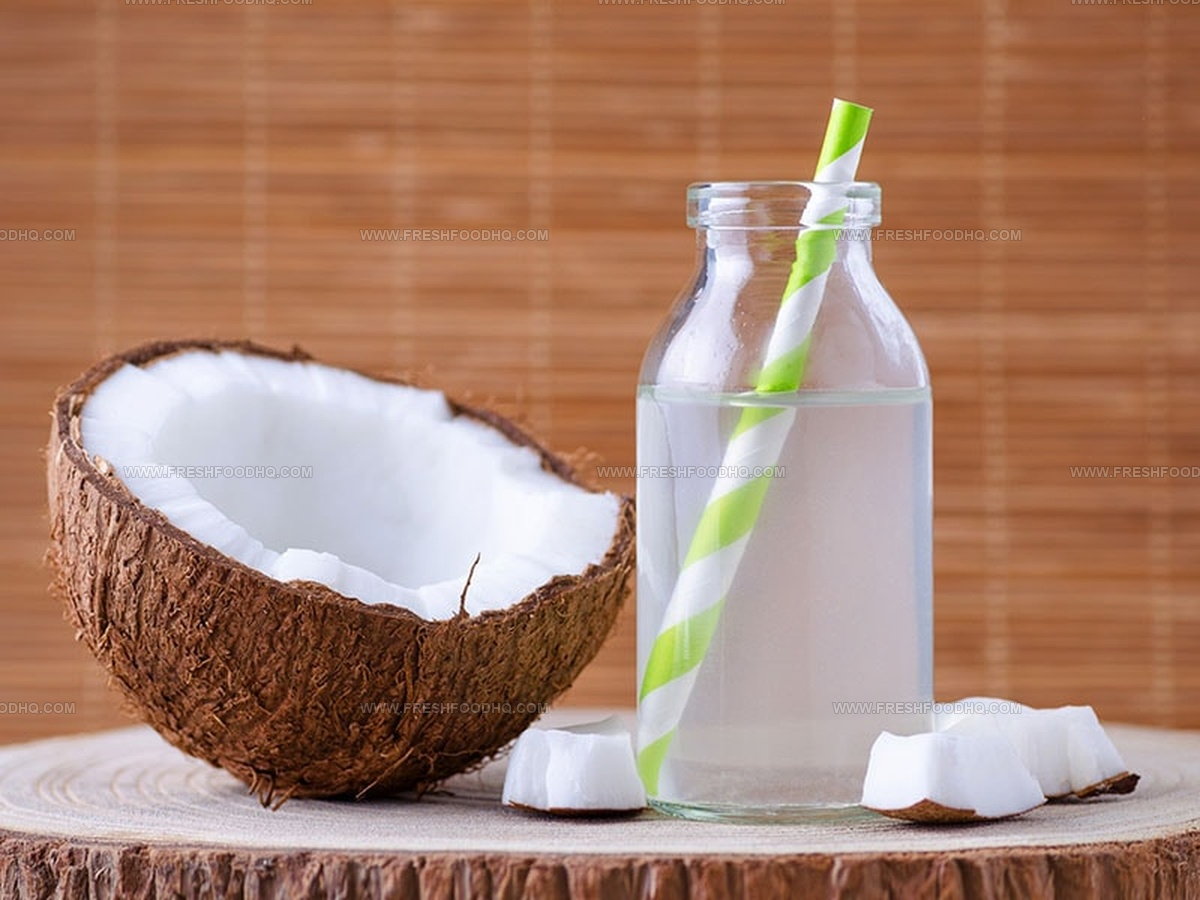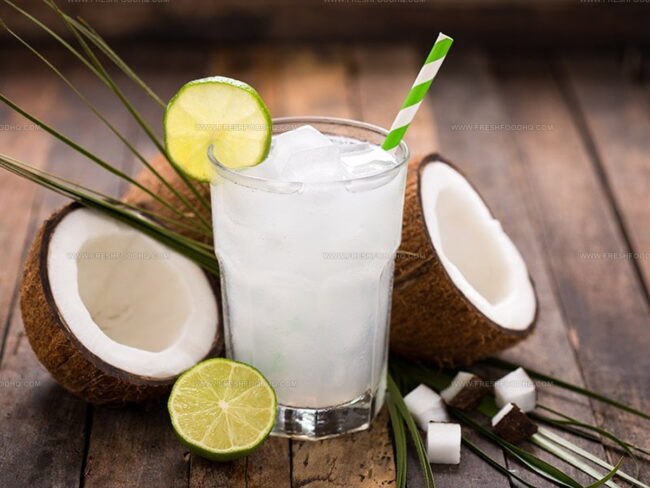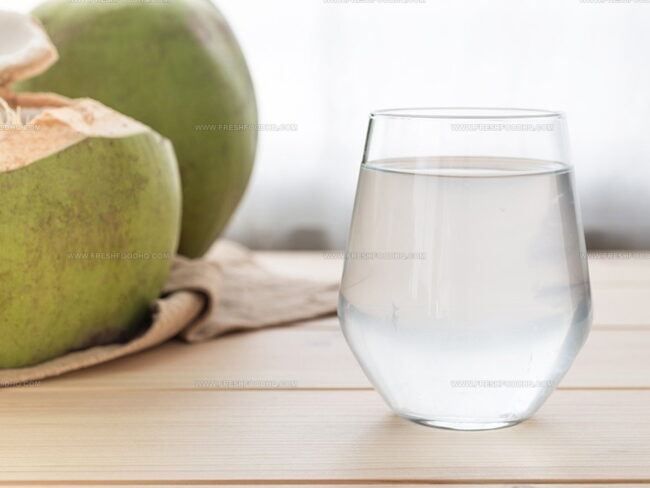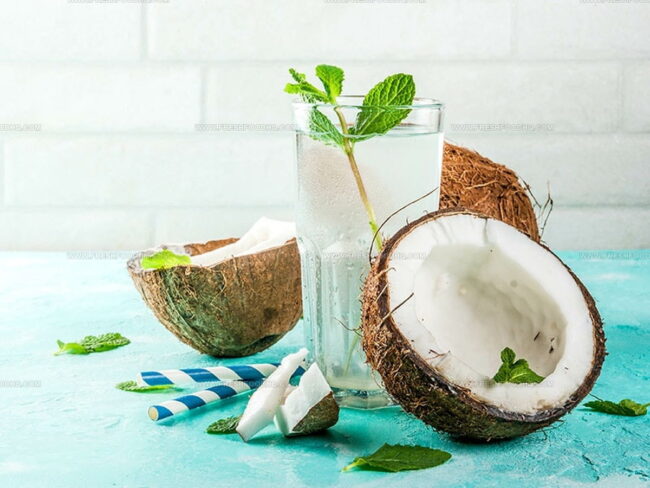Pedialyte or Coconut Water: Which Hydrates Best
Pedialyte vs. coconut water presents a fascinating comparison for anyone seeking effective rehydration options.
Popular drinks offer different approaches to replenishing lost fluids and electrolytes.
Many athletes swear by coconut water as a natural alternative, while medical professionals often recommend Pedialyte for its precise electrolyte balance.
The taste difference between them is quite significant – one being clinically formulated and the other straight from nature.
Parents of young children might recognize Pedialyte from pediatrician recommendations during illness.
Interestingly, both options have developed strong followings among different groups, from fitness enthusiasts to hangover sufferers.
The science behind hydration involves more than just replacing water, as proper electrolyte balance plays a crucial role too.
All these factors make understanding their differences essential if you want to choose the best option for your specific hydration needs.
What is Pedialyte?
Pedialyte stands out as an electrolyte drink available in powder or liquid form, initially created for children by Abbott Laboratories but equally beneficial for adults.
It contains a balanced mix of water, electrolytes like sodium and potassium, and sugars that work together to quickly replenish fluids and minerals lost due to illness, excessive sweating, or dehydration.
Often recommended by healthcare professionals for situations such as diarrhea, vomiting, or heat exhaustion, Pedialyte helps restore the body’s electrolyte balance more effectively than plain water or many sports drinks.
Its formula is gentle on the stomach and available in various flavors and forms, including ready-to-drink liquids, powders, and freezer pops, making it a convenient and trusted choice for rehydration needs.
The Overview of Coconut Water
Coconut water is the clear, natural liquid found inside young, green coconuts. It’s a delicious and refreshing drink packed with essential electrolytes like potassium, sodium, and magnesium, making it a perfect natural hydrator.
Unlike sugary sports drinks, coconut water is low in calories and naturally sweet, offering a tasty way to rehydrate after a workout or on a hot day. Its light, slightly nutty flavor makes it enjoyable on its own or as a mixer in smoothies and cocktails and even cooking recipes.
Pedialyte or Coconut Water? Key Differences Explained
Pedialyte and coconut water is clearly different from each other. Let's check this concise overview comparing these two.
| Feature | Pedialyte | Coconut Water |
| Types | Various lines including Classic, Sport, Organic, and Immune Support | Different coconut varieties like Green Dwarf, King Coconut, etc. |
| Usage | Medical-grade electrolyte drink for dehydration and rehydration | Natural hydration drink and ingredient in recipes and smoothies |
| How to Use | Ready-to-drink or powder to dilute; do not mix with other liquids | Drink fresh or packaged; can be mixed with other beverages |
| Nutrition | Balanced electrolytes with added minerals; no protein or calcium; may contain sweeteners | Natural electrolytes, vitamins, minerals, low calories, some protein |
| Flavor | Comes in many fruity, artificial flavors | Naturally sweet, nutty, and floral flavor |
| Shelf Life | Long shelf life, especially powder form | Short shelf life fresh; longer when packaged |
Types of Pedialyte and Coconut Water
Pedialyte comes in many varieties designed for different needs. It’s available as ready-to-drink liquids or powders that you dilute with water.
There are six main lines:
Coconut water comes naturally from many coconut species, with over 10 popular types like:
Usages
Pedialyte is mainly used to treat dehydration caused by diarrhea, vomiting, or intense exercise. It’s often marketed for children but works well for adults too.
It tastes good, replaces chemical electrolytes, and helps you recover faster. Some versions contain small amounts of sugar or sweeteners to improve flavor.
Coconut water is a natural hydrating drink that’s gained popularity among athletes and health-conscious people because of its natural electrolytes and minerals. Besides drinking it plain, coconut water is also added to Asian recipes and smoothies to boost flavor and nutrition.
It’s considered healthier than many commercial sports drinks.
Nutrition Comparison
Pedialyte is a specially formulated drink with balanced electrolytes, sugar, and sodium to maximize hydration. It typically lacks protein, calcium, and iron but may include prebiotics to support gut health.
Coconut water naturally contains electrolytes like magnesium, sodium, calcium, phosphorus, and a high amount of potassium, similar to a banana. It has no added sugar, gluten, or cholesterol and contains some natural fats, which improve flavor.
Pedialyte usually has fewer calories and no fat, making it ideal for rapid hydration during illness or intense workouts. Coconut water, on the other hand, provides more protein, potassium, iron, and vitamin C, appealing to those seeking a natural drink.
Flavor Profiles
Pedialyte offers over 20 flavors, mostly fruity, including grape, apple, orange, cherry, strawberry lemonade, fruit punch, kiwi berry, tropical fruit, and more.
Coconut water has a naturally mild, nutty, slightly sweet, and floral flavor.
Bottled coconut water comes in flavors like pineapple, watermelon, chocolate, mango, and banana, giving you a variety of tastes.
Which Drink Will Hydrate Better?
Pedialyte might hydrate more effectively because of its precise blend of vitamins and minerals. In certain situations, it can outperform natural options like coconut water.
Both drinks contain similar electrolytes, though coconut water offers a slightly wider variety.
The key rehydration components - sodium and potassium - appear in both beverages, but coconut water doesn't necessarily provide better hydration benefits than Pedialyte.
Many doctors recommend Pedialyte for specific dehydration cases because its formula is designed to replace lost fluids quickly. The medical-grade composition makes it particularly useful after intense workouts or during illness when your body needs rapid fluid replacement.
What Are Precautions in Drinking Pedialyte and Coconut Water?
For Pedialyte:
For Coconut Water:
Pedialyte and Coconut Water: Fresh Storage Tips for Longer Life
Pedialyte and coconut water need proper storage techniques to maintain their freshness and effectiveness. By following these simple guidelines, you can enjoy these hydrating drinks at their best quality whenever you need them.
At Room Temperature
Unopened Pedialyte and coconut water can be stored at room temperature for months without spoiling. Once opened, neither should be left out as they can quickly go bad.
Proper storage is key to keeping them safe and fresh.
| Product | Shelf Life |
| Pedialyte (Unopened) | Until best-before date |
| Pedialyte (Opened) | Not Suitable |
| Coconut Water (Unopened) | Up to 6 months after best-before date |
| Coconut Water (Opened) | Not Suitable |
In The Fridge
Refrigeration helps preserve both unopened and opened Pedialyte and coconut water for longer periods. Opened Pedialyte lasts about 2 days, while opened coconut water stays fresh up to 4–6 weeks.
Keeping them chilled ensures safety and maintains their quality.
| Product | Shelf Life |
| Pedialyte (Unopened) | Until best-before date |
| Pedialyte (Opened) | 2 days |
| Coconut Water (Unopened) | 9 – 12 months |
| Coconut Water (Opened) | 4 – 6 weeks |
More Interesting Facts about Pedialyte and Coconut Water
Pedialyte is often used to prevent dehydration caused by alcohol’s diuretic effect, which leads to hangover symptoms. While it replenishes fluids and electrolytes effectively, there’s limited scientific evidence proving it reduces hangovers better than other drinks.
Coconut water is also popular for rehydration and is gentle on the stomach, but medical experts agree that drinking plenty of plain water before, during, and after alcohol remains the best way to avoid or ease hangovers.
Coconut Water vs Pedialyte vs Gatorade: The Ultimate Hydration
After learning about pedialyte and coconut water, there is another good choice for rehydration that you might concern, which is gatorade. So how are they different?
Check this table for simple overview.
| Factor | Gatorade | Coconut Water | Pedialyte |
| Use for | Adult athletes | People of all ages | Children and adults |
| Purpose | Strong rehydration, energy support | Natural hydration | Rehydration after illness |
| Nutrition | Highest sodium & electrolytes; high calories & sugar | Lower sodium & electrolytes; low calories & sugar | Low sodium & electrolytes; low calories; sugar-free |
Got Questions? We’ve Got Solutions
1. When should I choose Pedialyte over coconut water?
Choose Pedialyte for severe dehydration, illness recovery, or after intense workouts. It has a precise electrolyte balance specifically designed for rapid rehydration and contains less sugar than coconut water.
2. Is coconut water a good option for everyday hydration?
Yes, coconut water is excellent for daily hydration and mild dehydration. It's a natural source of electrolytes, potassium, and other nutrients that support overall health while being less medicinal-tasting than Pedialyte.
3. Which is better for children - Pedialyte or coconut water?
Pedialyte is typically better for children experiencing dehydration from illness, as it's formulated specifically to replace lost fluids safely. For healthy kids needing regular hydration, coconut water can be a nutritious alternative to sugary drinks.
4. Can I use these drinks for hangover recovery?
Both can help with hangover recovery. Pedialyte works faster for severe dehydration symptoms, while coconut water provides natural sugars, potassium, and gentler rehydration with additional nutritional benefits.







Samantha Lee
Recipe Developer & Content Creator
Expertise
Plant-based and vegetarian recipes, Recipe testing and development, Food blogging and digital content creation, Culinary education and workshops
Education
Oregon Culinary Institute (Portland, OR)
Samantha sees cooking like painting, every fresh herb, every juicy tomato, a new splash of color on a canvas.
After graduating from Oregon Culinary Institute, she blended her love of global cuisines and plant-based cooking into recipes that feel fresh, fearless, and full of heart.
Samantha’s kitchen is a place where comfort food gets a modern remix and every meal feels like a little adventure. When she’s not cooking, she’s out exploring farmers’ markets, sketching new recipe ideas, or getting her hands dirty in a community garden.